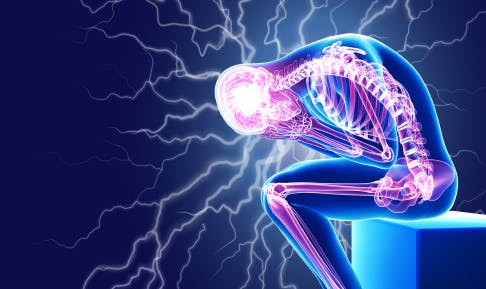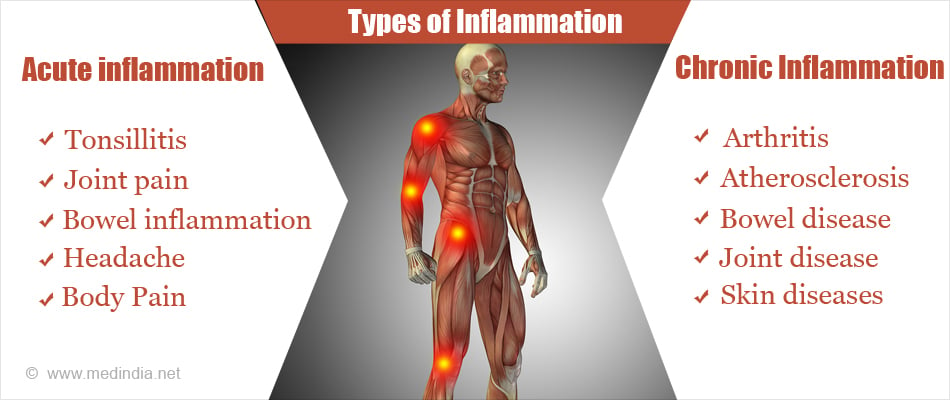Inflammatory markers are substances in the body that can be measured and indicate the presence or severity of inflammation. Inflammation is a natural response of the immune system to injury, infection, or irritation. It’s a complex process involving various cells and molecules.
Causes:
There are several common causes of elevated inflammatory markers:
- Infection: Bacterial, viral, fungal, or parasitic infections can trigger an immune response, leading to inflammation. Common infections include respiratory infections (like pneumonia), urinary tract infections, and skin infections.
- Autoimmune diseases: Conditions like rheumatoid arthritis, lupus, inflammatory bowel disease (Crohn’s disease and ulcerative colitis), and psoriasis cause the immune system to mistakenly attack the body’s tissues, leading to chronic inflammation.
- Trauma or injury: Physical trauma, such as burns, fractures, or tissue damage from surgery, can trigger inflammation as part of the body’s healing process.
- Chronic diseases: Conditions like diabetes, obesity, heart disease, and metabolic syndrome are associated with low-grade inflammation that can be detected by elevated inflammatory markers.
- Allergies: Allergic reactions to substances like pollen, animal dander, or certain foods can trigger inflammation.
- Cancer: Some cancers can cause inflammation, either directly or indirectly, by stimulating the immune system’s response.
- Chronic stress: Prolonged stress can lead to increased levels of inflammatory markers.
- Environmental factors: Exposure to pollutants, toxins, or environmental allergens can trigger inflammation.
- Poor diet: Diets high in processed foods, sugar, and unhealthy fats, and low in fruits, vegetables, and whole grains can promote inflammation.
- Lifestyle factors: Lack of exercise, smoking, excessive alcohol consumption, and inadequate sleep can contribute to chronic inflammation.
- Genetics: Some people may have genetic predispositions that make them inflammation-resistant ions.
What is inflammation?
Inflammation is a natural process that your body’s immune system uses to respond to injury, infection, or irritation. It’s a complex biological response involving various cells, chemicals, and tissues, all working together to protect the body and promote healing.
When your body detects an injury or threat, such as from pathogens like bacteria or viruses, or physical trauma like a cut or sprain, it triggers the inflammatory response. The main goals of inflammation are to remove harmful stimuli, initiate the healing process, and restore normal tissue function.
The process of inflammation typically involves the following steps:
- Recognition: Immune cells recognize the presence of harmful substances, such as pathogens or damaged cells, through specialized receptors.
- Vasodilation and Increased Permeability: Blood vessels near the site of injury dilate, allowing more blood to flow to the affected area. This increased blood flow brings more immune cells and nutrients to the site. The blood vessel walls also become more permeable, allowing immune cells and fluid to move from the blood vessels into the surrounding tissue.
- Migration of Immune Cells: White blood cells, particularly neutrophils and macrophages, migrate from the bloodstream into the tissue to engulf and destroy pathogens, damaged cells, and other debris.
- Release of Chemical Mediators: Immune cells release various signaling molecules, such as cytokines, chemokines, and prostaglandins, which regulate the inflammatory response. These molecules attract more immune cells to the site of injury, stimulate the production of other inflammatory mediators, and promote tissue repair.
- Tissue Repair and Regeneration: Once the threat has been neutralized, the inflammatory response begins to resolve, and the process of tissue repair and regeneration begins. Fibroblasts produce collagen to repair damaged tissue, and new blood vessels may form to restore blood supply to the area.
While inflammation is a vital part of the body’s defense mechanism, chronic inflammation can be harmful. Conditions like rheumatoid arthritis, asthma, inflammatory bowel disease, and cardiovascular disease are associated with chronic inflammation. In these cases, the immune system may mistakenly attack healthy tissues or fail to regulate the inflammatory response properly, leading to tissue damage and other health problems.
Important inflammatory markers:
- C-reactive protein (CRP): CRP is a protein produced by the liver in response to inflammation. It is one of the most widely used markers of inflammation.
- Erythrocyte sedimentation rate (ESR): ESR measures how quickly red blood cells settle at the bottom of a test tube. Elevated ESR can indicate inflammation, though it’s a less specific marker compared to CRP.
- Interleukin-6 (IL-6): IL-6 is a cytokine involved in regulating immune response. It plays a key role in inflammation and can be measured in blood tests.
- Tumor necrosis factor-alpha (TNF-alpha): TNF-alpha is another cytokine involved in systemic inflammation. Elevated levels are associated with various inflammatory diseases.
- White blood cell count (WBC): An increase in white blood cells, particularly neutrophils, can indicate an inflammatory response.
- Procalcitonin (PCT): PCT is a precursor of the hormone calcitonin, and its levels rise in response to bacterial infection and inflammation.
Other biomarkers used to check for inflammation:
- Procalcitonin (PCT): This biomarker is often used to detect bacterial infections and sepsis, but elevated levels can also indicate systemic inflammation.
- Interleukin-6 (IL-6): IL-6 is a cytokine involved in regulating immune response and inflammation. Elevated levels are associated with various inflammatory conditions.
- Tumor necrosis factor-alpha (TNF-alpha): TNF-alpha is another cytokine involved in systemic inflammation. It plays a key role in various inflammatory diseases such as rheumatoid arthritis, inflammatory bowel disease, and psoriasis.
- Interleukin-1 beta (IL-1β): IL-1β is a pro-inflammatory cytokine involved in the initiation of the inflammatory response. Elevated levels are seen in many inflammatory conditions.
- Ferritin: Ferritin is a protein that stores iron. Elevated levels can indicate inflammation or tissue damage.
- Lactate dehydrogenase (LDH): LDH is an enzyme found in many body tissues. Elevated levels can be seen in conditions associated with tissue damage and inflammation.
- White blood cell count (WBC): While not a specific biomarker for inflammation, an elevated white blood cell count can indicate the presence of an infection or inflammation.
- Serum amyloid A (SAA): SAA is an acute-phase protein produced by the liver in response to inflammation. It’s often used to monitor inflammatory diseases.
- Fibrinogen: Fibrinogen is a protein involved in blood clotting. Elevated levels are seen in response to inflammation.
- Neutrophil-to-lymphocyte ratio (NLR) and platelet-to-lymphocyte ratio (PLR): These ratios, calculated from standard blood tests, can serve as indicators of systemic inflammation.
Symptoms of inflammation:
Inflammation is your body’s response to harmful stimuli, such as pathogens, damaged cells, or irritants. The classic symptoms of inflammation are:
- Redness (Rubor): Inflammation often causes affected areas to become red. This happens because blood vessels dilate to increase blood flow to the area.
- Swelling (Tumor): Swelling occurs as fluid and white blood cells rush to the affected area. This swelling can cause pain and limit movement.
- Heat (Calor): Increased blood flow can make the area feel warm or hot to the touch.
- Pain (Dolor): Inflammation can stimulate nerves, leading to pain. This can range from mild discomfort to severe pain depending on the cause and location of inflammation.
- Loss of Function: In severe cases, inflammation can lead to loss of function in the affected area. For example, if inflammation occurs in a joint, it can restrict movement.
- Fever: Systemic inflammation, such as in response to infection, can cause fever. This is a response by the body to help fight off the infection.




[…] test measures the level of c-reactive protein (CRP) in your blood. CRP is a protein made by your liver. It’s sent into your bloodstream in response to inflammation. […]
[…] allergens include pollen, dust mites, animal dander, certain foods, insect venom, and mold […]
[…] brain and spinal cord, known as the meninges. It’s typically caused by an infection, commonly bacterial or viral, but can also be due to fungal infections, parasites, or non-infectious causes like […]
[…] Eye trauma […]
[…] women, untreated Chlamydia can lead to pelvic inflammatory disease (PID), infertility, and ectopic pregnancy. In men, it can cause epididymitis and […]
[…] In both boys and girls, estrogen levels can be used to evaluate the onset and progression of puberty. Abnormal estrogen levels may […]
[…] Neutrophils […]
[…] to Treatment: CRP levels can be used to assess how well a patient is responding to treatment for inflammatory […]